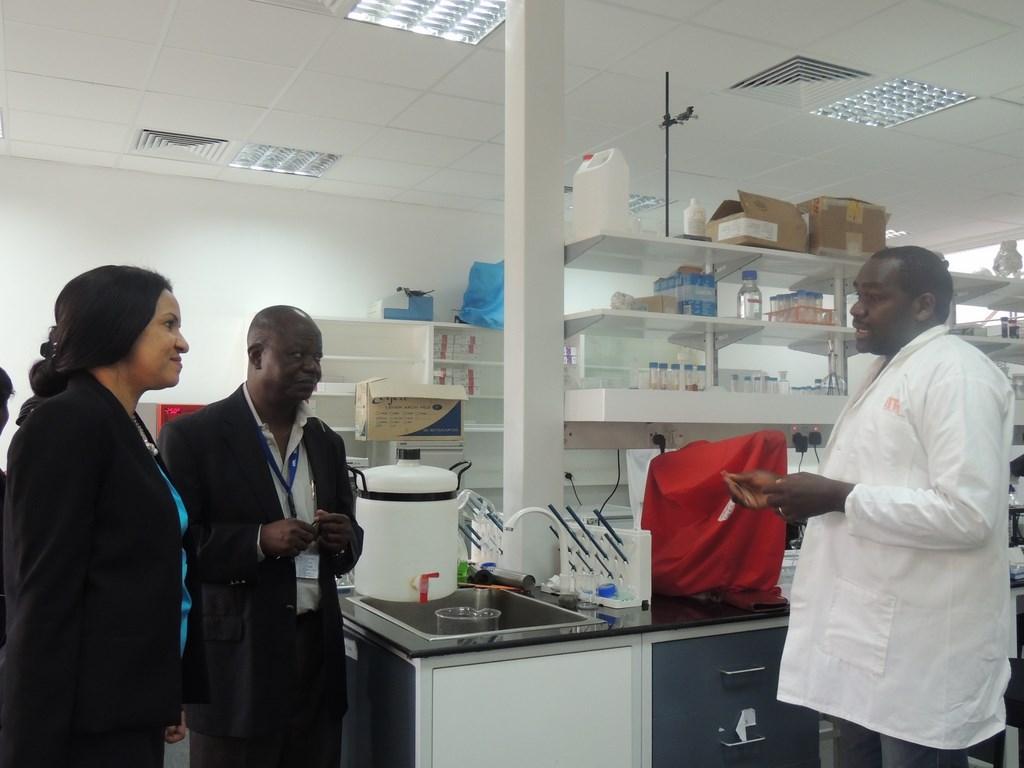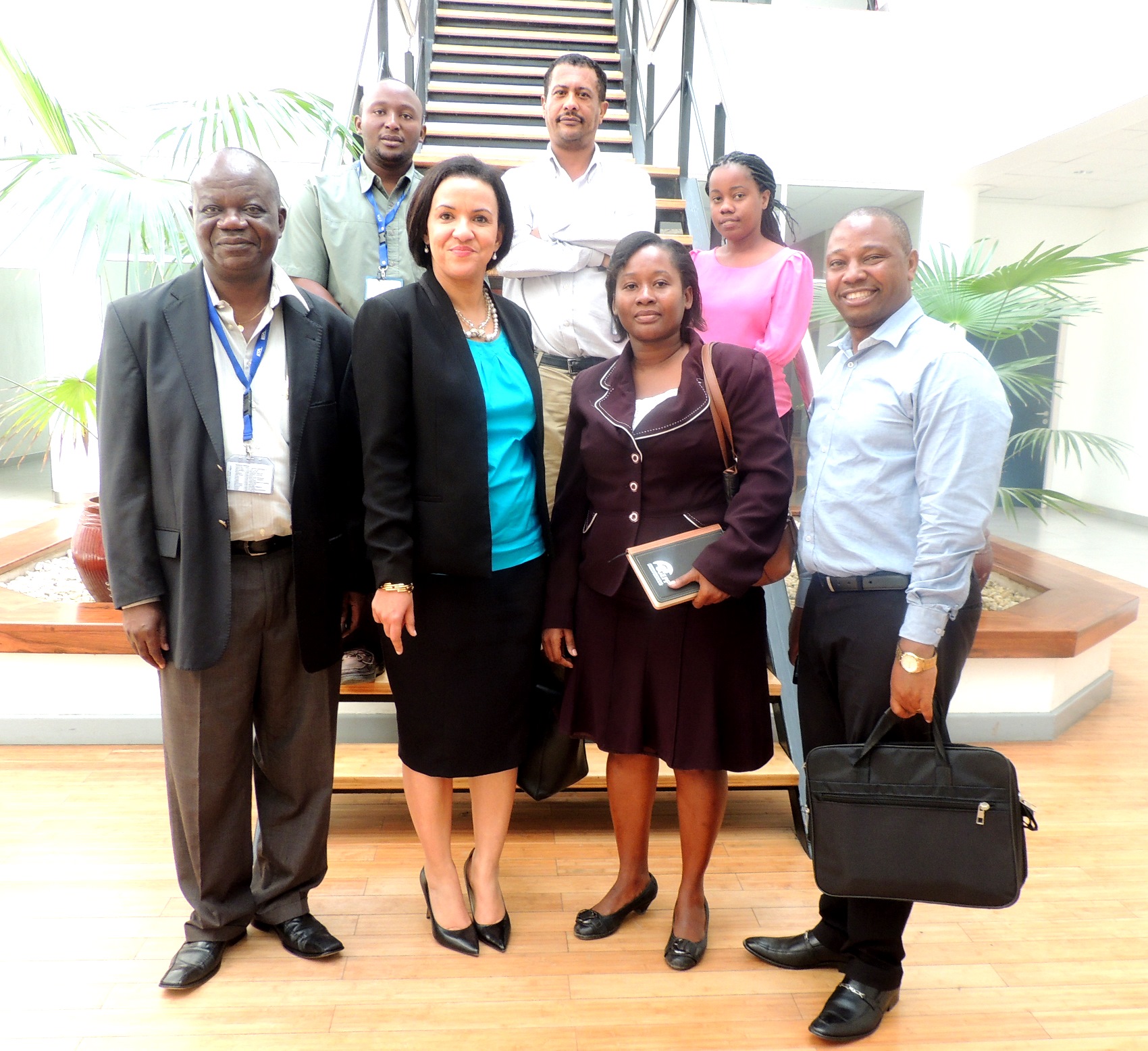The newly appointed Executive Director of the Economic Social Research Forum (ESRF), one of the leading policy think tanks in Tanzania, recently visited IITA at its East Africa Hub in Dar es Salaam, to explore ways that the two institutions can strengthen their partnerships and work together.
Dr Tausi Kida and her delegation were warmly welcomed by Dr Victor Manyong, the IITA Director for East Africa, and other socio-economic researchers. The visit started with a formal meeting where the Heads of the two Institutes gave brief presentations on their organizations and held discussions on areas for collaboration. In the end they agreed that IITA and ESRF should formalize their relationship through signing a Memorandum of Understanding (MoU).

Dr Tausi Kida listens to Mr Harun Murithi’s (right) explanation about research on soybean
rust. She is accompanied by Dr Victor Manyong (center).
Dr Tausi said ESRF had been at the center of guiding the Government on economic development and the formulation of policies on poverty reduction in Tanzania for the last 20 years. She explained that ESRF was supported by the Government but it worked independently and was also supported by various donors. It was involved in knowledge management and the communication of policies, conducting strategic research on identified policy gaps, and building capacity on policy analysis through conducting short-term training and organizing policy dialogs. In addition, it carried out commissioned research policy analysis and impact studies for Government, the private sector, and NGOs.
Dr Manyong briefed the visiting team on the activities of IITA in east Africa which he said were directed to reducing poverty, hunger, and malnutrition and rehabilitating degraded lands in the region. He also gave a highlight of the on-going socio-economic research at the Institute which was more relevant to the focus of the ESRF.
These included assessing the impact of its research on poverty reduction by conducting impact assessments, ex ante (before a technology is rolled) and ex-post (after a technology has been developed, disseminated, and scaled out). Others include the studies on adoption of technologies, gender, livelihoods, and markets.
He gave an example of two studies by IITA to determine the impact of adoption of its technologies on poverty levels in the Great Lakes region. One was conducted in parts of Rwanda, Burundi, and eastern DR Congo under the Consortium for Improving Agriculture-based Livelihoods in Central Africa program, (CIALCA). The other in eastern DR Congo focused on the impact of the adoption of improved cassava varieties developed and distributed in this part of the country.
“From both studies, we were able to show how IITA contributed to lifting over half a million people out of poverty through their association with our technologies,” he said.
Common areas of synergy that were identified in the ensuing discussions included knowledge management, capacity building, tackling youth unemployment, and influencing agricultural policies.
“We are conducting a lot of research on agriculture and we would like to influence policy. We can benefit from the expertise your organization has in this area,” Dr Manyong informed the ESRF team. After the meeting, the ESRF Director and her team toured the IITA Science Building to learn more on the on-going research.



No Comments